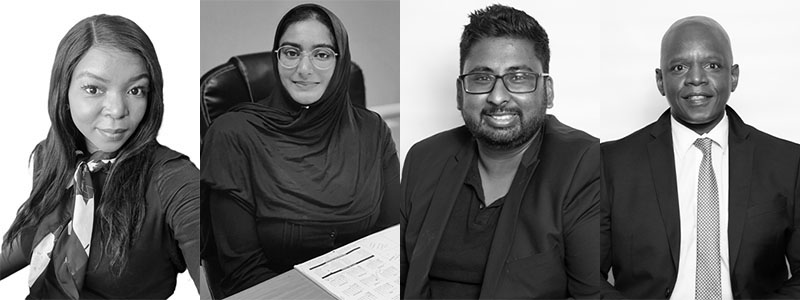Higher education, that sprawling landscape of lecture halls, research labs and late-night study sessions, is undergoing a quiet but profound transformation. The Covid-19 pandemic shattered the status quo, pushing universities to rethink the way they engage with students and each other.
Now, a group of researchers from the North-West University (NWU) – Nombulelo Zenani, Nisa Ayob, Alexander Samuels and Martin Chanza – have taken a closer look at how universities can break down academic silos to improve student engagement and academic success. Their findings, published in the Management and Economics Research Journal, offer a fresh perspective on how to turn the ivory tower into a bustling marketplace of ideas.
Their review, which draws on a wide range of studies from disciplines as diverse as health sciences, natural sciences, economics, and education, argues that collaboration across faculties is not just a buzzword but a practical necessity. "Interprofessional collaboration is more than just a nice-to-have," Nombulelo notes. "It’s essential for creating a cohesive learning environment where students can thrive."
At the heart of this approach is the idea that students do not learn in isolation. Their academic success depends on the quality of the connections they make – with their peers, their instructors, and the broader academic community. The review identified four key themes that can help universities foster these connections: the use of technology in teaching, work-integrated learning, student-centric approaches, and reflective practices.
Technology, for example, can bridge the gap between students and lecturers. Online collaboration platforms, digital discussion boards, and blended learning tools make it easier for students to engage with their coursework and each other, even when physical proximity is not possible. "Technology should not be seen as a substitute for in-person learning," Nisa explains, "but as a powerful tool that can enhance the learning experience when used effectively."
Work-integrated learning, another pillar of the team’s findings, focuses on the practical side of education – giving students the skills they need to thrive in the workplace. This approach integrates real-world experiences into academic curricula, ensuring that graduates leave university not just with theoretical knowledge but also with the practical skills employers demand.
Alexander points out that this approach is particularly relevant in fields like health sciences, where students must be prepared for the realities of clinical practice. "It’s not enough for students to know the theory," he says. "They must be able to apply it in high-stress, real-world situations."
But effective teaching is not just about technology and real-world experience. It’s also about creating learning environments where students feel valued and motivated. The review highlights the importance of student-centric approaches, like flipped classrooms and active learning strategies, which put students in the driver’s seat of their education. These methods encourage critical thinking, collaboration, and self-directed learning – skills that are essential in today’s fast-paced, information-rich world.
Finally, the team emphasises the value of reflective practices – encouraging both students and lecturers to regularly assess what works and what doesn’t in the learning process. "Reflection is a powerful tool for growth," Martin notes. "It helps educators fine-tune their teaching strategies and gives students the self-awareness they need to succeed."
As the world of higher education continues to evolve, the findings of Nombulelo, Nisa, Alexander and Martin offer a roadmap for institutions looking to break down silos and build more collaborative, student-focused learning environments. By embracing technology, integrating real-world experiences, and fostering a culture of reflection, universities can prepare their students for the challenges of a rapidly changing world – and maybe even produce the next generation of great thinkers in the process.

From left are Nombulelo Zenani, Nisa Ayob, Alexander Samuels and Martin Chanza.
